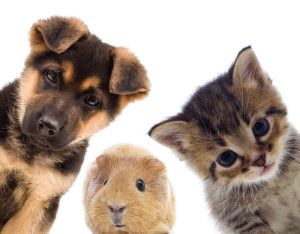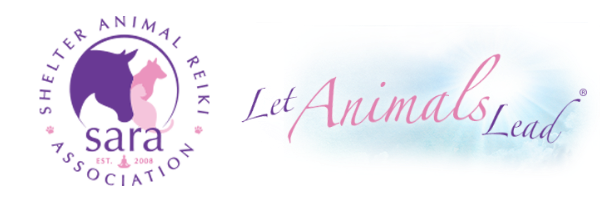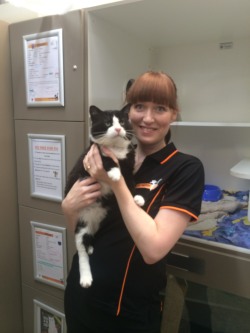
I hope to shift this perspective by providing a new one for you to consider. A viewpoint infused with gratitude and compassion for all those who make shelter operation possible, and of course for the precious animals who find themselves in a shelter through no fault of their own.
After 18 months of volunteering Reiki weekly at Cat Haven (in Perth, Western Australia) I now view shelters as beautiful havens for the rejuvenation and recovery of animals.
Just like you and I animals are all different. Where we find ourselves at this point in our life is unique to us, just like it is for each animal in a shelter.
To dispel the myth that we need to feel sad for these animals, we need to explore why we might feel this way. Largely this is based around what we perceive to be their previous experiences, especially where these were negative. We may have even been through similar disheartening experiences ourselves and as such our own unresolved or conflicted emotions about this may start to rise up.
If you have ever visited a shelter you will have noticed that some animals do not seem fazed by the ‘shelter experience’ and appear ready to find their new home straight away. Meanwhile it is clear that many others have indeed had a rough time before their arrival and as such they need a chance to recuperate before going back out into the world- our human world- again. It is these animals especially which Reiki can benefit.
For example prior to arriving at the shelter they may have been:
- A feral animal with only negative experiences of human interaction (or even no experience of us at all);
- From the home of an animal hoarder;
- A friendly stray, who has been confident enough to approach people for food but who has no permanent home;
- A lost animal without any means of identification (i.e. a collar or micro chip) and who may have consequently had to survive for some time on the streets before finding their way to the shelter;
- An animal who previously had a home but their ‘people’ were no longer able to care for them, including cost of care;
- Just not wanted anymore, often due to a change in circumstances, including separation/ divorce; or
- A wild animal (in the case of native wildlife: where they are given a chance to heal before being returned to their home in nature).
While the reason they came to the shelter might be sad, as soon as they arrive the animals could truly not be in better hands. For in many ways they are lucky to be there at all and it is a blessing that they are greeted with such love, care and compassion when they need it most. For some of these animals it might even be the first time they have been approached by humans in this way and because they are in such a state of stress it is difficult for them to realise that help is being offered.
Veterinarians, who have studied for years to help these animals now in front of them, use their depth of knowledge and experience along with diagnostic tools such as blood and urine testing to determine if the animal requires any particular medical support and provide it where necessary. (Including flea treatments, vaccination, other medications, and surgery).
The animals are neutered, to prevent one animal without a loving home turning into many more experiencing those same circumstances. The animals are micro chipped, so should they be lost after adoption it will be that much easier to reunite them with their human custodians.
This is all completed to get the animal into the best place possible health wise and to prepare them for their new home. However sometimes they are not quite ready to move forward just yet. Shelters therefore provide sanctuary for these animals gifting them with time, safety and ongoing care, supporting the animal to recuperate and prepare for its onward journey.
Whatever these animals have been through we must gently acknowledge (sometimes over and over again) that the reasons they might be skeptical of us are valid. Their unwillingness to let us see who they really are is in fact the same protective mechanism we may come to realise we are also utilising, implemented after experiencing mistreatment in our own lives.
So, as these animals find themselves in their new and temporary home at the shelter with food, a comfortable safe place to sleep and relieve themselves, but surrounded by many other animals in similar and differing circumstances it is understandable and likely that they are feeling wary of the future ahead of them.
Sometimes I imagine what their stories might have looked like.
The animal may have helped a couple learn what it is like to care for a dependent being, to love someone different than themselves, yet when the stress and challenges of a new baby comes along they are sent off to a shelter. Disregarded for the knowledge and wisdom they have shared.
The animal may have helped a person through a number of life experiences, providing love and companionship for many years. Then the person has an individual call to move on to other things and in doing so (and for one reason or another) they leave the animal behind. Not recognising how much harder it would have been to overcome those difficulties/ embrace their current path without the animal by their side.
The animal may have been a valued family member for many years yet their owner has become to old to care for them. Although other family members are unwilling to take them on, they are still being provided with a new opportunity to bring joy and happiness to someone else. In recognition of the love, lessons and companionship shared over the years.
They might be a feral animal that needs time to adjust to even being in the vicinity of humans, let alone learning to trust us and realize that we are not ‘all bad.’ Depending on their past experiences it will likely take them some time to reach this conclusion. Then more time to understand how the complicated domesticated animal-human relationship works.
No matter the circumstances or the story we can ascribe to the animal, isn’t the best way to look at it possibly that while their previous circumstances weren’t ideal for them they now have the opportunity to find those that are?
Circumstances where people will have time for them, where they will be cherished for what they bring to the home. Where they are able to live out the rest of their life being cared for and appreciated, no matter how many years they have left, the cost of any care they might need, or the time it may take them to recover and embrace the safety and love of their new home.
Yes, the wonderful people who come to shelters to adopt their new animal friend have just these things in mind. They wish to help the animals to embrace their future, regardless of their past, and these positive thoughts and emotions further encourage the animal’s level of trust.
This is why tapping into the hope, respect and compassion we have for all animals facing such a delicate point in their lives is much more beneficial to them – and to us – than other emotions such as sadness, pity or anger.
Before they can get to these homes however they must wait it out in the shelter. Being highly sensitive creatures, the shelter environment itself can be quite stressful for the animals. They find themselves with limited space, surrounded by numerous other animals in varying states of distress, fear, pain, anger etc. I can only begin to imagine the sensory, auditory and intuitive overload they must be experiencing within the shelters walls.
This is where Reiki is so useful as a complementary tool to provide further support, both emotionally and physically. The peacefulness created and radiated out by our meditation helps the animals to understand they are in a safe place where genuine concern exists for their wellbeing.
They might have been so stressed that they hadn’t realized, until that moment of peace pervaded them, that so many wonderful caring and compassionate human beings surround them who are dedicated to ensuring their immediate needs and more are met every single day. Reiki helps the animals to let go and move towards acceptance, just as our own personal meditation and contemplation practice provides for us.
For the animals, this could look like them falling into a deep restful sleep for the first time, giving their body a chance to re-energize and their nervous system a chance to restore. Sometimes they haven’t been eating well (or at all) and as they start to embrace the relaxation facilitated by Reiki they suddenly realise just how hungry/ thirsty they are, or even that it is safe to eat, and they move over to their food bowls and start gobbling down their food or lapping up water.
Sometimes relief is experienced by way of a bowel movement, which they could have been holding on to for some time. Other times a sense of play might be re-ignited and they will start jumping around in their condo in happiness. Or they might even just start to look around and get their bearings, understanding they are safe for the first time since their arrival. Other times they start the process of cleaning themselves, perhaps a sign not only of their pride in keeping themselves clean but to ensure they look their best for the people visiting the shelter that day.
The open gentle space of hope and compassion we are able to hold for the animals during meditation, along with that held by those working at the shelter (and expanding out: all the people who demonstrate care and kindness towards animals) really is beneficial and helps the animals to feel comfortable in letting their true personality shine through, maybe for the first time in years.
Isn’t that beautiful? The only tears we should really shed for these animals are tears of joy in recognition of their strength and also as a sign of deep gratitude for our own unique ability to assist the animals in such a gentle, loving and kind way via the offering of Reiki.
I really hope this article has helped you to appreciate how beneficial Reiki, or indeed unconditional love and compassion can be for shelter animals. I encourage you from the bottom of my heart to please consider volunteering Reiki at a shelter today!
You might enter a shelter thinking you are going there to support the animals yet you may leave finding that the animals have actually helped you. That is how radiant and beautiful they are. Even in their time of need they share with us such profound lessons about life, forgiveness and the power of compassion and love. Animals are here to teach and support us in opening our hearts to the beauty that exists not just within them, but also within each one of us.
Carolyn Trethewey
SARA Practitioner


I experience everything that is said in this blog . I work as a volunteer in a Dog Trust Rehoming Centre. I have learnt so much from these wonderful dogs . So rewarding to see them learn to trust and love humans again. Some even give love at once when they feel they are in a safe environment. Still sad to see so many broken spirits though. Some never heal and have to stay in kennels all their life. Some are so badly damaged and aggressive as a result of past treatment that they have to go over Rainbow Bridge. Bless their little souls. Reiki can help so many long stay dogs . If only it was universally used in all Animal Shelters. I have seen how the results where I work. Such a joy to see a tail wagging again , food being eaten and a walk looked forward to.
Beautiful. Written with feeling and understanding.